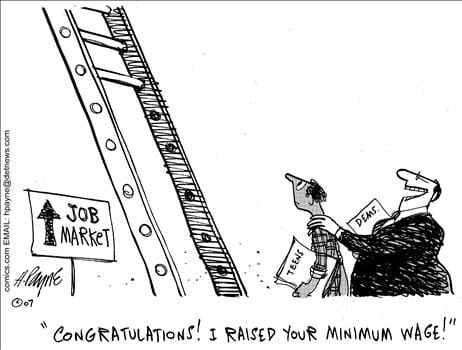Couldn't have illustrated the new corporate state that Obama is building better than this -- at state where large corporations, unions, and government officials conspire to use government power to enrich their contituencies to the detriment of smaller businesses, consumers, and taxpayers. WSJ via Tad DeHaven:
The government has taken on a giant role in the U.S. economy over the past year, penetrating further into the private sector than anytime since the 1930s. Some companies are treating the government's growing reach "” and ample purse "” as a giant opportunity, and are tailoring their strategies accordingly. For GE, once a symbol of boom-time capitalism, the changed landscape has left it trawling for government dollars on four continents.
"˜The government has moved in next door, and it ain't leaving,' Mr. [GE CEO Jeffrey] Immelt said at the International Economic Forum of the Americas in Montreal in June. "You could fight it if you want, but society wants change. And government is not going away.'
A close look at GE's campaign to harvest stimulus money shows Mr. Immelt to be its driving force"¦ Inside GE, he pushed his managers hard to devise plans for capturing government money.
By January, Mr. Immelt had become a leading corporate voice in favor of the $787 billion stimulus bill, supporting it in op-ed pieces and speeches. Reporters who called the Obama administration for information on renewable-energy provisions in the legislation were directed to GE.
When the stimulus package was rolled out, Mr. Immelt instructed executives leading the company's major business units "to put together swat teams to get stimulus money, and [identify] who to fire if they don't get the money," says a person who heard him issue the instructions.
In February, a few days after President Obama signed the stimulus plan, GE lawyers, lobbyists and executives crowded into a conference room at GE's Washington office to figure out how to parlay billions of dollars in spending provisions into GE contracts. Staffers from coal, renewable-energy, health-care and other business units broke into small groups to figure out "how to help companies" "” its customers, in particular "” "get those funds," according to one person who attended.
From Henry Payne, in an article on the auto industry:
The Left likes having Big Industry straw men to bash whenever their socialist plans run aground, but the fact is, Big Industry is embracing the U.S.'s leftward lurch. Better to secure your place at the Rentseekers Roundtable, to lock out new competition and guarantee a never-ending stream of government welfare.



